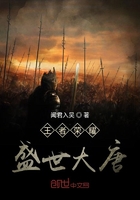THE NOVICESHIP
Most of us, perhaps, think of the saints as men and women who accomplished visibly great things. Saint Paul, Saint Augustine, Saint Patrick, Saint Theresa, Saint Philip Neri, Saint Francis Xavier: such names as these come first to our minds when we think of "a saint." Yet the fact is that the greater number of saints are men and women who never did anything that the world would consider great or striking. Saint Joseph was of that sort. Even the Blessed Virgin lived and died in obscurity, made no stir in the world.
Sanctity is measured not so much by what one does as by how one does all things. Externally a saint may not differ at all from other people. It is his soul that is different.
And so, a visitor to the Professed House in Rome in 1567, meeting Stanislaus Kostka, would see a handsome, pleasant-looking Polish boy of seventeen, with his sleeves rolled up above his elbows, with an apron over his cassock, carrying wood for the kitchen fires, washing dishes, serving at table, sweeping corridors and rooms.
He got up at half past four, or five o'clock, every morning. He spent half an hour in meditation, in thinking over some incident in our Lord's life or some great truth, as that death is near to each of us, that this life is only the vestibule of eternity, that our whole business in life is to do what God wants us to do, or the like.
After that came Mass and, once or twice a week, Holy Communion and his thanksgiving. Then breakfast, taken in silence. He read in a spiritual book for half an hour or so after breakfast, then went to the kitchen or the dining hall or the scullery, where he set to work under the orders of the cook.
In the course of the morning there might be a talk or instruction from the priest in charge of the novices. There surely would be one or more visits to the chapel. When the hour for dinner came, Stanislaus probably served at table, taking his own meal later. After dinner there was an hour for recreation, when the novices walked and chatted in the garden or about the house.
The afternoon, like the morning, was taken up with lowly work, with prayer, and a little reading or instruction. Toward evening, he again spent half an hour in meditation. Then came the evening meal, another hour of recreation, a little reading in preparation for next morning's meditation, and examination of conscience as to how the day had been spent, and then bed.
Two or three days a week, this routine was broken. Sometimes the novices walked out into the country to a villa, where they had games and ate their dinner. At other times they left their work to go with one of the Fathers to some church or other, upon business.
It was a quiet, humble life, full of peace, near to God, hidden away from men. In this life the novices had to continue for two years, before they took upon themselves the obligation of vows, and before they began the long studies that prepare a Jesuit for his work. During those two years they tested their vocation, ****** sure that God really called them to that life; and they tested their own wills to see if they were ready to endure what such a life demanded of them.
Stanislaus did just what the other novices did, did nothing out of the ordinary. Yet, of course, he was different from the others; he was a saint. What was the difference? Just this: they did things more or less well; he did things perfectly. If he prayed, he put his whole mind and soul into hisprayer. If he worked, he obeyed orders absolutely, because in doing so he was obeying God.
There is in the Jesuit noviciate at Angers a series of paintings portraying incidents in the life of Stanislaus. In one he is shown carrying on his arm two or three bits of wood towards the kitchen. Underneath is written, "He will err if he carry more."
The painting commemorates an occasion when Stanislaus and Claude Acquaviva were put by the cook to carry wood and told to carry only two or three pieces at a time. Acquaviva, when the two came to the wood-pile, said laughingly:
"Does the cook think we are babies? Why, we can each carry twenty or thirty of such little pieces of wood."
"To be sure we can," Stanislaus answered. "But do you think God wants us to carry twenty or thirty pieces now? The cook said two or three, and the cook just at present takes the place of God to command us."
And so it was in everything. He studied singly to see what would please God most, and no matter how trifling seemed the command he did just that, with all his heart.
No one ever heard a sharp word from him, or saw him take offense at anything, or act in the least way out of vanity or selfishness.
And, of course, he was entirely unconscious that he was different from the rest. He knew he was trying to do his best in everything, but hesupposed every one else was doing the same. And with all his earnestness and exactness, he was as ****** and boyish as he had ever been.
One day Cardinal Commendoni, the Legate to Vienna, and a great friend of Stanislaus, came to Rome and hurried over to the Roman College to call upon Stanislaus. Stanislaus, as soon as he heard of his arrival, ran off to meet him just as he was, sleeves rolled up, apron on, straight from the scullery - just as any boy would do.
He was in everything perfectly at ease; content in his little round of little tasks; going ahead toward heaven without any show or heroics. Hewas doing just exactly the little things that God wants us to do, and he was entirely happy in so doing.
It is true he had never been really unhappy in his whole life. People who keep close to God never are. They have hard things to put up with;they may be poor, or fall sick, or lose their relatives or friends by death;they may have to fight very strong temptations. They feel all these things as keenly as others feel them. But they do not become unhappy. We may say they have a world of their own to live in, that their inmost lives are spent in that world, very little touched by the changes and accidents of the outer world. They see that there is an outer world, but they choose deliberately to ignore it; they will not go into it.
You know that if you go down deep into the sea, as men go in submarines, you find calm there always, even though a storm be raging up above and the waves toss with angry violence. So if you once get inside your life, under the surface, in the heart of life where God is, you will find calm there also and a certain peace which is as near as we can come to entire happiness in this world.
But though Stanislaus had learned this secret, and had therefore always kept his soul merry, he was happiest of all during the time of his noviceship. The very air around him breathed of God and heaven. His life there was really an unbroken prayer. He was like a swimmer who has been fighting his way through nasty, choppy, little waves, going ahead surely, but with great difficulty, and who comes at last into long, quiet, rolling swells, where his progress is delightful, where he can make long, easy strokes and feel pleasure in the very effort.
And as he was young and ardent, he was in danger of overdoing things. Prayer, even when it is a joy, is always hard work for us poor mortals. Stanislaus gave himself so heartily now to praying that he ran risk of losing his strength and health. So his superiors, being sensible men, stepped in and moderated his energy. He was made to work more and pray less, told to be prudent, to husband his strength for future work. And, of course, he did as he was told.
But God had special designs on Stanislaus. He was never to use his health and energy in work as a priest or teacher. Indeed, his work was nearly over, though it had been so brief. He had no long career before him on this earth; he was going home, and going soon.















